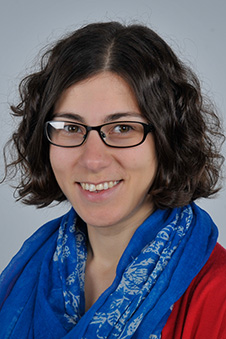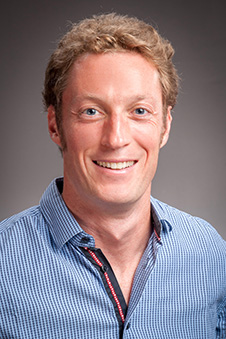Increasing the amount of time schools devote to physical education each week could dramatically reduce the number of children who are doing only minimal levels of exercise, researchers from the University of Otago, Wellington and Sport New Zealand have found.

Dr Anja Mizdrak.
Lead researcher Dr Anja Mizdrak from the University of Otago, Wellington, says increasing PE time at school to 2.5 hours a week could halve the number of young people doing minimal levels of exercise while increasing the proportion of sufficiently active young people to 68 per cent.
The researchers used information from Sport New Zealand's Active NZ Survey of more than 8,000 children and young people aged from five to 17 years to assess current activity levels and then modelled the impact of increasing PE time at school.
Their research is published in The New Zealand Medical Journal.
Dr Mizdrak says the survey showed 61 per cent of children and young people were 'sufficiently active', clocking up more than seven hours of exercise a week. Almost 20 per cent were moderately active (3.5 to seven hours a week) and 19 per cent were minimally active (less than 3.5 hours a week).
“The results suggest urgent action is required. Introducing 2.5 hours of PE a week in schools would reach a large proportion of young people who are currently missing out on physical activity, and would halve the number who are minimally active to eight per cent.”
While New Zealand schools are required to include PE as part of the curriculum, there is no requirement on how much time should be devoted it, in contrast to many other countries, including Australia, where schools are required to provide at least two hours of PE a week.

Dr Justin Richards.
Co-Researcher Dr Justin Richards, the Academic Lead at Sport New Zealand and Associate Professor in Physical Activity and Wellbeing at Te Herenga Waka—Victoria University of Wellington, says schools are an important setting for promoting quality physical activity among children and young people.
“The routine and regularity of school on five days a week provides an opportunity to ensure physical activity is better spread throughout the week and to ensure that daily physical activity recommendations are met.”
He says despite PE being part of the curriculum, a large proportion of children and young people surveyed (44 per cent) said they had received one hour or less of physical education at school in the previous week.
“Ensuring all pupils do at least 2.5 hours of quality physical activity a week at school is the best way of reaching those young people who were most inactive and had the most to gain from being active.”
Dr Richards says there was variation in the proportion of young people who were sufficiently active among different groups, with males having higher physical activity levels than females and the least deprived young people having higher physical activity levels than the most deprived young people.
“Introducing a minimum time requirement for PE, or in fact physical activity participation during the school day, would close the inequity gap in physical activity participation across socio-economic, ethnicity and gender lines.”
The research paper, 'The potential of school-based physical education to increase physical activity in Aotearoa New Zealand children and young people: a modelling study' is published in The New Zealand Medical Journal.
For more information please, contact:
Dr Anja Mizdrak
Senior Research Fellow
Department of Public Health
University of Otago, Wellington
Email anja.mizdrak@otago.ac.nz
Dr Justin Richards
Academic Lead – Sport New Zealand
Email justin.richards@sportnz.org.nz
Cheryl Norrie
Communications Adviser
University of Otago, Wellington
Mob +64 21 249 6787
Email cheryl.norrie@otago.ac.nz
Philip Clark
Group Media Manager
Sport New Zealand
Email philip.clark@sportnz.org.nz
Find an Otago Expert
Use our Media Expertise Database to find an Otago researcher for media comment.